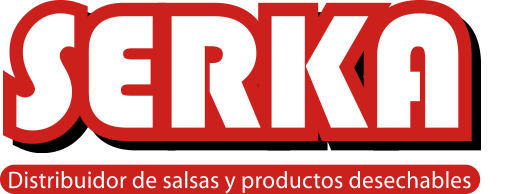Bet ABC Islands
The ABC islands (Aruba, Bonaire, and Curacao) form a fascinating landscape of gambling regulations within the Caribbean. Each island, though historically linked, boasts unique approaches to gambling, reflecting their distinct cultural and economic landscapes.
Aruba, known for its vibrant tourism industry, has embraced land-based casinos, offering a taste of Las Vegas in a tropical paradise. The island permits both traditional casino games and sports betting, contributing significantly to its tourism revenue.
Bonaire, a haven for divers and nature enthusiasts, maintains a more conservative approach. While land-based casinos are present, the focus leans towards smaller establishments catering to a niche clientele. Online gambling regulations remain ambiguous, mirroring a cautious stance towards digital platforms.
Curacao stands out as a pioneer in the online gambling world. Its long-established licensing regime, dating back to the early days of internet gaming, attracts a global clientele. However, recent scrutiny from the Netherlands, pushing for tighter regulations, signals potential shifts in Curacao’s liberal approach.
This diverse regulatory landscape across the ABC islands highlights the complex interplay between tourism, economic development, and social perspectives surrounding gambling in the region.
Curacao Gambling License
Curacao has earned a prominent position in the global online gambling landscape, largely due to its flexible and accessible licensing regime. Established in 1996, the Curacao e-Gaming Licensing Authority offers a single master license encompassing all forms of online gambling, from casino games and sports betting to lotteries and poker.
Attractive features of the Curacao license include⁚
- Relatively low cost⁚ Compared to other jurisdictions, obtaining and maintaining a Curacao license involves lower fees and taxes, making it an appealing option for startups and smaller operators.
- Simplified application process⁚ The licensing procedure is known for its straightforward nature and relatively quick turnaround time, allowing operators to launch their platforms swiftly.
- Minimal restrictions on game types⁚ The single license structure grants operators the flexibility to offer a wide array of gambling products under one umbrella.
However, the Curacao licensing regime has faced criticism for its perceived leniency⁚
- Limited player protection measures⁚ Concerns have been raised regarding the robustness of player protection mechanisms and responsible gambling initiatives.
- Reputation for attracting less reputable operators⁚ The accessible nature of the license has attracted both legitimate businesses and less scrupulous actors, impacting the overall perception of the jurisdiction.
Facing pressure from the Netherlands and evolving industry standards, Curacao is undergoing reforms to strengthen its regulatory framework, aiming for a balance between attracting businesses and ensuring responsible gambling practices.
Gambling Laws and Regulations in the Netherlands
The Netherlands has undergone a significant transformation in its approach to gambling regulation in recent years, moving from a restrictive model to a more liberalized market. The Betting and Gambling Act of 2021, which came into effect in April 2021, serves as the cornerstone of this new era.
Key aspects of the Dutch gambling framework include⁚
- Licensing by the Kansspelautoriteit (KSA)⁚ The KSA acts as the regulatory body, responsible for issuing licenses, enforcing regulations, and promoting responsible gambling. Obtaining a Dutch license is notoriously stringent, requiring operators to meet high standards of financial stability, game fairness, and player protection.
- Open yet Controlled Market⁚ While the market has opened to international operators willing to comply with the regulations, the KSA maintains strict control. This ensures a level playing field while safeguarding against problem gambling and criminal activity.
- Focus on Player Protection⁚ The Dutch model places a strong emphasis on responsible gambling measures. Operators are mandated to implement robust KYC (Know Your Customer) procedures, offer tools for self-exclusion and deposit limits, and prominently display information about gambling addiction resources.
This comprehensive regulatory overhaul aims to strike a balance between allowing Dutch citizens access to a wider range of gambling options while ensuring a safe and transparent gambling environment. The long-term impact of these changes continues to be observed as the market matures.
The Impact of Dutch Gambling Laws on the Caribbean
The Netherlands’ revamped gambling laws, particularly its crackdown on unlicensed operators targeting Dutch citizens, have sent ripples across the Caribbean, particularly impacting Curacao. As a long-standing hub for online gambling companies, Curacao faces a pivotal moment of adaptation and potential economic readjustment.
The stricter Dutch regulations have placed pressure on Curacao to enhance its own licensing regime and address concerns about operators using the island as a base to circumvent tighter rules in other jurisdictions. This pressure stems from the Netherlands’ desire to protect its citizens and ensure a fair and transparent gambling market within its borders.
For Curacao, this presents both challenges and opportunities. On the one hand, the island risks losing revenue and jobs if online gambling operators choose to relocate to jurisdictions with less stringent requirements or if the flow of Dutch players to Curacao-licensed sites diminishes.
On the other hand, this situation presents a chance for Curacao to modernize its gambling regulations, potentially attracting a new wave of operators seeking a reputable and well-regulated environment. Ultimately, the long-term impact will depend on how Curacao navigates these evolving dynamics and positions itself within the global online gambling landscape.
Advantages and Disadvantages of Obtaining a Curacao Gambling License
A Curacao gambling license has been a popular choice for online gaming operators for decades, but recent regulatory shifts necessitate a nuanced evaluation of its benefits and drawbacks.
Advantages⁚
- Relatively low barrier to entry⁚ Curacao offers a streamlined licensing process with comparatively lower fees and capital requirements, making it attractive for startups and smaller operators.
- One license, multiple gaming verticals⁚ A single Curacao license covers a broad spectrum of gaming activities, including casino games, sports betting, and lotteries, offering operational flexibility.
- Favorable tax regime⁚ Curacao boasts a competitive tax structure, with low corporate tax rates and no VAT on gambling activities, enhancing profitability.
Disadvantages⁚
- Reputational challenges⁚ Curacao’s historically lenient approach has led to scrutiny regarding its effectiveness in combating illicit activities, potentially impacting an operator’s reputation.
- Regulatory uncertainty⁚ Ongoing pressure from the Netherlands and evolving international standards create uncertainty regarding future regulatory changes, potentially affecting business stability.
- Market access limitations⁚ While a Curacao license provides global reach, it may not guarantee access to regulated markets like the Netherlands, requiring operators to secure additional licenses.
Ultimately, the decision to obtain a Curacao gambling license hinges on a thorough risk-reward assessment, considering the evolving regulatory landscape and an operator’s long-term business objectives.


